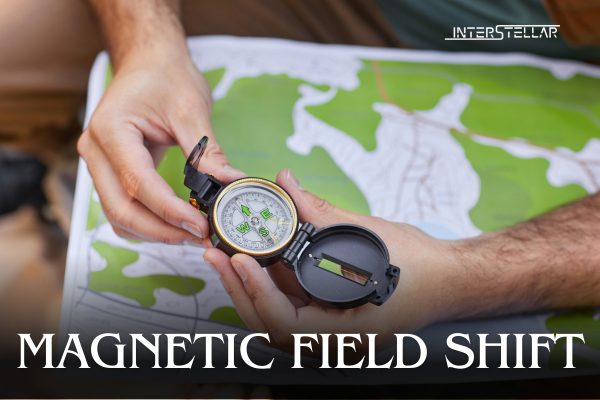The Ever-Changing Nature of Earth’s Magnetic Field
Earth’s magnetic field serves as an invisible shield, protecting us from harmful solar radiation. This essential force, however, is not constant. It fluctuates in both strength and location, leading to significant challenges in navigation systems and deepening our understanding of Earth’s complexities.
Whether you use a compass, rely on GPS, or fly in an airplane, you depend on this magnetic field. Yet, recent studies suggest that our understanding of it might need some fine-tuning.
The Wandering Poles and Their Impact
Imagine Earth’s magnetic field as a colossal bar magnet, with force lines extending from the North to the South Pole. Unlike a real magnet, however, this field is anything but stable. The churning molten iron and nickel in Earth’s outer core drive continuous changes.
These fluctuations, often triggered by solar storms and variations in solar wind, disrupt geomagnetic field models. These models are critical for satellite navigation, airplane routes, and other essential operations.
The IGRF-13 Model and Its Discrepancies
A recent study from the University of Michigan explored these discrepancies by comparing satellite data with the International Geomagnetic Reference Field (IGRF-13). This standard model helps track Earth’s magnetic field. The researchers found that the differences were not just caused by space weather, as previously thought. Instead, an asymmetry between the North and South poles, both in magnetic field strength and their geographic positions, played a significant role.
This asymmetry, combined with the fact that satellites gather more data around the poles, leads to biases. These biases exaggerate the differences between existing models and the actual magnetic field.
Why Accurate Magnetic Field Models Matter
Satellite Navigation: Accurate magnetic field models are crucial for maintaining satellite orbits and ensuring their proper function. Even minor errors in these models can lead to significant issues in satellite positioning, affecting communication, weather forecasting, and GPS services. Satellites in low Earth orbit are particularly vulnerable, making reliable models indispensable.
Aviation: In aviation, dependable magnetic field models are essential for safe navigation, especially in polar regions where the earth’s magnetic field shift is more variable. Pilots rely on geomagnetic data to determine their heading, and inaccurate models can lead to significant hazards.
Shipping: Maritime navigation also relies on magnetic field models to guide ships safely across oceans. Any inaccuracies can lead to navigational errors, which are especially dangerous in remote areas with limited access to other navigation aids.
Scientific Research: Accurate models are vital for scientific research, particularly in studying Earth’s magnetosphere and related phenomena. These models help researchers predict space weather events like solar storms, which can impact satellite operations, power grids, and communication systems on Earth.
Space Weather Prediction: Understanding and predicting space weather is another critical application. Reliable models allow scientists to monitor changes in the magnetic field and provide early warnings of potential space weather events. This helps in protecting critical infrastructure and minimising the impact of these events.
Refining Our Understanding of Earth’s Magnetic Field Shift
The University of Michigan study underscores the importance of refining our understanding of Earth’s magnetic field. By addressing the asymmetry between the poles and improving data collection methods, we can develop more accurate models. These improvements are essential for navigation, scientific research, and a better overall understanding of our planet’s dynamic electromagnetic shield.
Earth’s magnetic field continues to protect us, but its unpredictable nature presents ongoing challenges. The research from the University of Michigan is a crucial step towards ensuring that our navigation systems remain reliable in the face of these changes.





